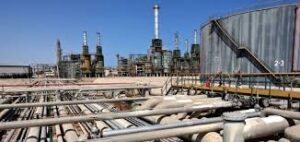Libya’s Oil Production Under Threat as Political Tensions Escalate
Blockades loom over Libya’s oil fields as assassination sparks fears of massive production shutdowns that could cost billions in revenue
Libya’s ambitious plans to boost oil production to 2 million barrels per day by 2028 are hanging by a thread as political violence threatens to trigger widespread blockades across the country’s oil infrastructure. The May 12 assassination of militia leader Abdul Ghani al-Kiklii has sent shockwaves through the industry, with rival factions now positioning for what could be another devastating round of oil field shutdowns.
The North African nation, which derives 97% of its government revenues from oil, had been making promising progress with its Strategic Programs Office planning to increase production from the current 1.4 million barrels per day to 1.6 million within a year. The country’s first oil exploration bidding round in over 17 years had attracted more than 40 applicants, including oil supermajors like ConocoPhillips, with European companies eager to secure alternative supplies to replace Russian oil.
However, the assassination has reignited tensions between the Tripoli-based Government of National Unity and the eastern-based Government of National Stability, backed by military strongman Khalifa Haftar. Warning signs emerged when gunmen stormed the National Oil Corporation headquarters in Tripoli on May 28, followed by Haftar’s threats to impose new blockades unless oil revenue distribution is made more equitable.
The stakes couldn’t be higher – Libya’s previous blockade from January to September 2020 cost the country at least $9.8 billion in lost hydrocarbon revenues. With the country sitting on 48 billion barrels of proven reserves, the largest in Africa, any disruption could send shockwaves through global energy markets already grappling with supply uncertainties.
Source: Oilprice.com





